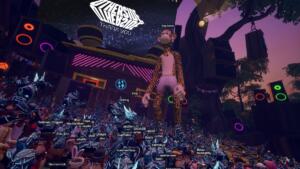Jeju Island, a renowned tourist haven in South Korea, is on the verge of a digital revolution, exploring the integration of NFTs into its local economy. This innovative approach seeks to leverage blockchain technology to reimagine the sectors of tourism and agriculture, potentially unlocking new avenues for value creation on the island.
Pioneering Digital Transformation with NFTs
At the heart of this digital exploration are NFTs—unique digital tokens that establish ownership of assets on a blockchain. Unlike traditional cryptocurrencies like Bitcoin and Ethereum, NFTs are distinct for their non-fungibility, transparency, security, and scarcity. These characteristics make them suitable for various applications, from securing digital content to asserting ownership of real-world assets.
Jeju Island’s interest in NFTs signifies a strategic move towards embracing digital innovation. A recent event focused on Blockchain Applications brought this discussion to the forefront. Held at the Samda Hall of the provincial government, the session featured Kwon Soo-ho from the Korea Blockchain Industry Promotion Association.

Kwon shared his expertise on blockchain and NFTs, particularly their applicability in developing Jeju’s various sectors. The gathering, attended by Governor Oh Young-hoon and representatives from diverse local organizations, showed a collective ambition to boost the local economy through advanced blockchain technologies.
Potential Applications of NFTs in Jeju
The discussion delved into the evolving landscape of Web3, marked by decentralization and a burgeoning token economy. Kwon proposed numerous innovative NFT applications for Jeju, from rewarding Olle Trail hikers with NFTs to creating tourism-themed NFT collections. Moreover, he suggested using NFTs to authenticate the origin of Jeju‘s speciality products, such as its famed black pork and Halla-bong oranges, and to streamline currency exchanges and payments.
Governor Oh’s vision extends beyond current digital transformation efforts, aiming to establish Jeju as a leading “NFT city.” Furthermore, it could represent a step towards integrating new Web3 technologies across all facets of the province’s operations, from tourism to local commerce.
Adventure defines Jeju with its array of experiences, from exploring lava tubes and hiking up rugged terrains to participating in tea agriculture and tangerine harvests. Additionally, the island boasts art museums and a rich cultural tapestry. Overall, it will be interesting to see if the island’s adventurous spirit can leverage NFTs to bolster its distinct offerings.
Author

Web3 advocate with a knack for breaking down complex concepts into engaging narratives.




